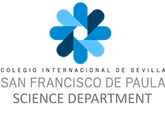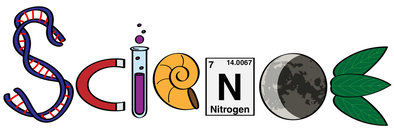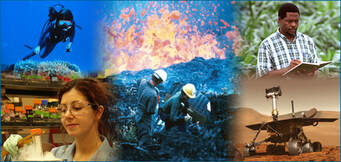Unit 1: Introduction to investigations
Vocabulary
What is science?The word "science" probably brings to mind many different pictures: a fat textbook, white lab coats and microscopes, an astronomer peering through a telescope, a naturalist in the rainforest, Einstein's equations scribbled on a chalkboard, the launch of the space shuttle, bubbling beakers …. All of those images reflect some aspect of science, but none of them provides a full picture because science has so many faces:
|
- Science is both a body of knowledge and a process. In school, science may sometimes seem like a collection of isolated and static facts listed in a textbook, but that's only a small part of the story. Just as importantly, science is also a process of discovery that allows us to link facts into coherent understandings of the natural world..
- Science is exciting. Science is a way of discovering what's in the universe and how those things work today, how they worked in the past, and how they are likely to work in the future. Scientists are motivated by the thrill of seeing or figuring out something that no one has before.
- Science is useful. The knowledge generated by science can be used to develop new technologies, treat diseases, and deal with many other sorts of problems.
- Science is ongoing. Science is continually refining and expanding our knowledge of the universe, and as it does, it leads to new questions for future investigation. Science will never be "finished."
- Science is global. People all over the world participate in the process of science. And you can too!
Science covers a lot of things. In fact, it covers so many things that it can be divided into several branches, also called disciplines or fields.
In MYP science, we cover the following disciplines::
In MYP science, we cover the following disciplines::
Chemistry |
Chemistry is the study of the composition of substances and how they interact with each other.. It covers topics such as:
• How substances can change form, such as between solid, liquid and gas, as well as through processes such as dissolving. • How substances can interact and their particles rearrange to form new substances. • Energy changes involved in physical and chemical processes. |
Physics |
Physics is the study of natural phenomena from the smallest sub-atomic particles to entire galaxies.. It covers topics such as:
• The motion and interaction of moving objects. • Forces such as magnetism, gravity and electrostatic forces. • Waves, including light, sound and electromagnetic radiation. • Energy and heat, and how they can be transferred and transformed. • Electricity and electrical circuits. |
Biology |
Biology is the study of living things.. It covers topics such as:
• The diversity of living things, including animals, plants, fungi and microorganisms. • How the features of living things are related to the functions that their body systems perform. • How living things are interdependent and interact with each other and their environment. • The structure of cells, and the vital life processes they perform. |



